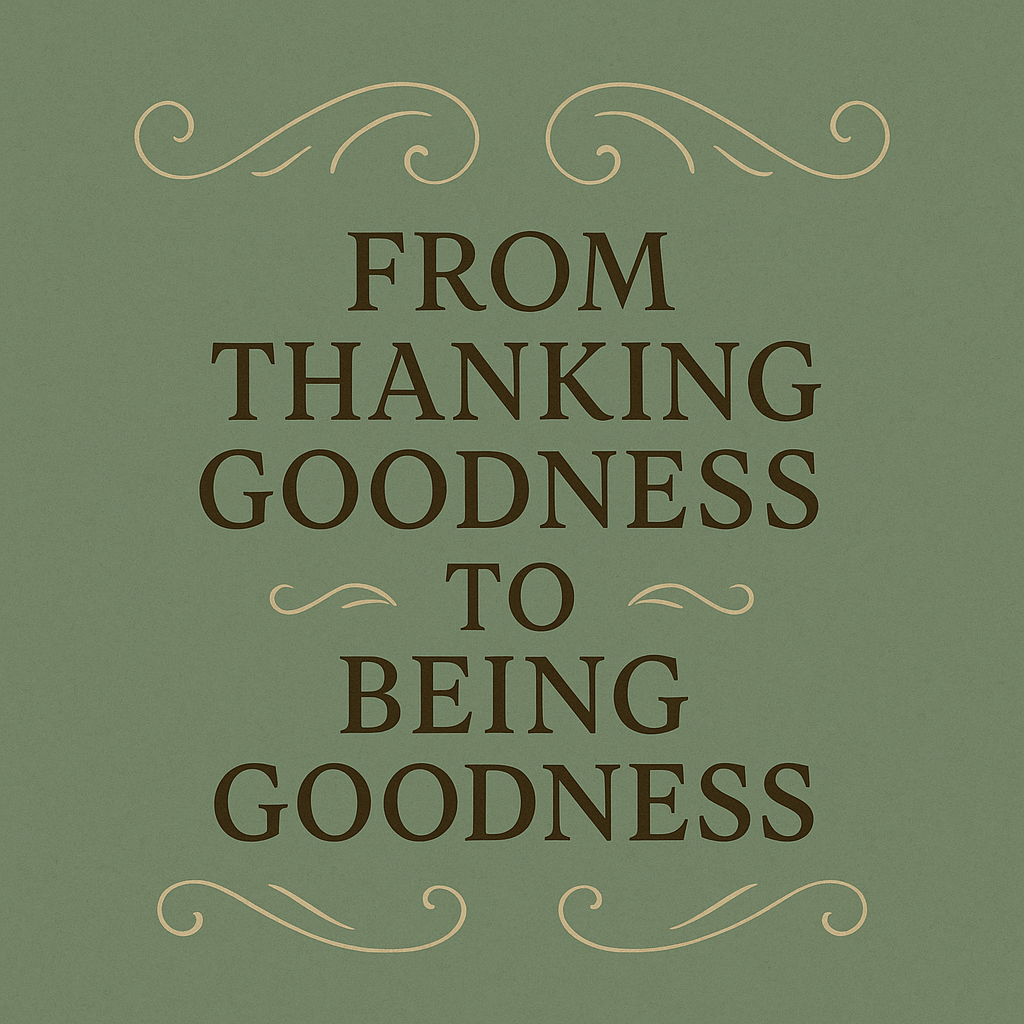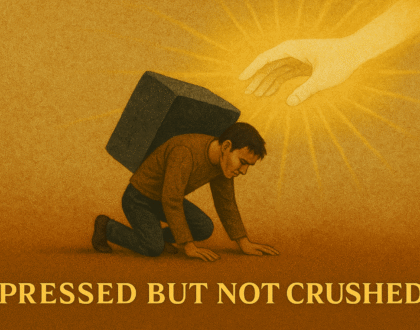From Thanking Goodness to Being Goodness

This past Sunday was Homecoming. We gathered as a community to celebrate not just the long legacy of our church, but the deeper, ongoing story of God’s people—stretching back generations, rooted in faithfulness, and always moving forward in hope. We remembered that our life together is not just about us as individuals, but about the “we”—the family of God, built on the faith and sacrifice of those who came before us and sustained by the grace that carries us now. In a world that is often divided, we are called to be a people of grace, mercy, and love, embodying the welcome and healing of Christ.
Pastor Jason reflected on Matthew 18:21–35 where Jesus tells the story of a servant who receives extravagant mercy but refuses to extend it to someone else. His words sound humble, his posture looks repentant, but his actions betray an unchanged heart. The parable warns us that it’s possible to appear grateful—even to kneel in worship—and still miss the deeper transformation God desires. True faith is not just expressed in our prayers or praise; it’s revealed in how mercy takes shape in our lives.
That truth comes to life in the song “Thank Goodness” from the musical Wicked. Glinda stands before the crowd declaring how happy and thankful she is, yet beneath her sparkling smile, she’s uneasy—living with the tension between appearance and reality. Her song echoes the forgiven servant’s mistake: performing goodness without becoming good.
This week’s message invited us to take that same honest look at ourselves—to move, as we said on Sunday, “from thanking goodness to being goodness.” God calls us beyond polished words and practiced piety into a life where grace is not just received but reflected. The Spirit invites us to trade performance for presence, polish for peace, and comfort for character—until the song of our mouths and the truth of our hearts finally sound the same.
As we come to Christ’s Table, we remember that we are part of a legacy—a people who have tried, sometimes failed, but always sought to live faithfully. May we be those who, by God’s grace, leave behind not just memories, not just songs, not just words, but a living witness of mercy, love, and truth for generations to come.
Key Scriptures
Matthew 18:21-35
Jeremiah 6:14
Isaiah 29:13
Key Takeaways
- True spiritual transformation is not about outward performance but inward honesty. It is easy to put on a mask of happiness or gratitude, but God desires truth in our innermost being. Only when we are honest with ourselves and with God can real change begin to take root. [33:00]
- The mercy we receive from God is meant to flow through us to others. The parable of the unforgiving servant reveals the tragedy of receiving grace but refusing to extend it. Our calling is not just to be recipients of forgiveness, but to become agents of mercy in a world desperate for it. [39:40]
- Hypocrisy often grows in the soil of self-deception. We can become so accustomed to our own spiritual performances that we start to believe them, losing sight of the deeper work God wants to do in us. The danger is not just in fooling others, but in fooling ourselves and missing the invitation to real holiness. [46:12]
- Small compromises and convenient untruths can quietly erode our integrity. Whether it’s a borrowed Tupperware never returned or a “thank you Jesus” smile masking deep pain, these small acts matter. God calls us to a life where our words and actions align, where even the smallest details reflect His truth. [44:50]
- The journey from “thanking goodness” to “being goodness” is ongoing and often difficult. It requires daily self-examination, humility, and a willingness to let God’s grace shape us from the inside out. Our legacy as Christ’s followers is not in our perfection, but in our persistent pursuit of integrity, love, and mercy. [52:42]
Questions for Reflection
The sermon challenges us to move from “thanking goodness” to “being goodness.” Is there an area in your life where you tend to put on a mask or perform for others, rather than being honest with God and yourself? What would it look like to take off that mask this week?
Think about a time when you received mercy or forgiveness from God or someone else. Did you find it easy or hard to extend that same mercy to others? What holds you back from being merciful?
The sermon gives examples of “small lies,” like not returning borrowed Tupperware or pretending to be “too blessed to be stressed.” Can you think of a small area where you’ve let a convenient untruth slide? What step could you take to make it right?
The sermon says, “We can sing, ‘How great thou art!’ while our heart is muttering, but don’t change me too much, Lord.” Are there areas where you resist real change, even while participating in church or spiritual activities? What is one area you want to invite God to change in you?
The parable ends with the servant being called “wicked” for not forgiving as he was forgiven. Is there someone in your life you need to forgive, or at least begin the process of forgiveness with? What is one practical step you could take this week?
Recommended Posts

The Pressing Weight of Wickedness
October 7, 2025

Defying Gravity: Rising Above What Pulls You Down
October 2, 2025

God’s Heartbreak
September 22, 2025
